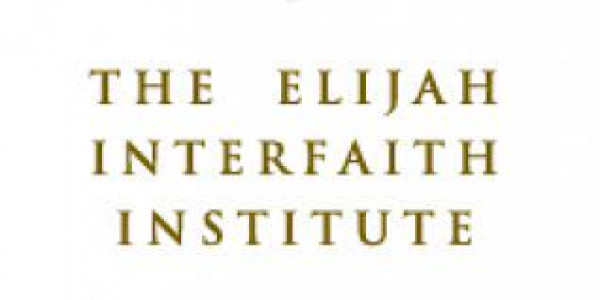Our Common Humanity: What We Share as Creations in the Divine Image
12/05/2022 | Na stronie od 11/05/2022

Source: Elijah Interfaith Institute
Praying Together in Jerusalem
Our Common Humanity: What We Share as Creations in the Divine Image Join us for our monthly gathering of Praying Together in Jerusalem.
Scholars and leaders from Judaism, Christianity, Islam, Buddhism and Hinduism will share their wisdom and local leaders will lead us in prayers.
We will be meeting in-person at Saint Peter in Gallicantu on Mt Zion and online on Zoom.
Thursday, May 12 at 6:00 pm Jerusalem time
- 11 am ET time
- 8 am Pacific time
- 4 pm UK time
- 5 pm Central European time
- 6 pm Israel time
- 8:30 pm India time
Save your spot by signing up here.
Featuring the following teachers:
Dr. Mohammed Dajani, Jerusalem
Dr. Dajani is Director of the Wasatia Academic Institute in Jerusalem. Dr. Dajani holds doctorate degrees from the University of Texas and University of South Carolina. He is the founding director of the Jerusalem Studies and Research Institute, chair of the board of directors of the House of Water and Environment in Ramallah, and member of the board of directors of the YMCA, Jerusalem. He has written extensively on Arab culture and politics, including an International Herald Tribune op-ed he co-authored with Washington Institute executive director Robert Satloff titled “Why Palestinians Should Learn About the Holocaust.”
Rabba Tamar Elad-Appelbaum, Jerusalem
Rabba Appelbaum is the co-founder of the Beit Midrash for Israeli Rabbis, a joint project of the HaMidrasha Educational Center for Israeli Judaism and the Shalom Hartman Institute. Moreover, she founded Kehilat ZION in Jerusalem. She devotes much of her energy to the renewal of community life in Israel and the struggle for human rights. In 2010 she was named by the Forward as one of the five most influential female religious leaders in Israel for her work promoting pluralism and Jewish religious freedom.
Father Barry Bercier, Jerusalem
Fr. Barry is a Catholic priest, with the Assumptionists at St. Peter in Gallicantu (Jerusalem). He studied political philosophy and theology at Assumption College, in Massachusetts, at Notre Dame University in Indiana, and at Boston College. He also spent a year at the Ratisbonne Institute. Most of his life Fr. Barry was a teacher, but he spent nine years in parish work, mostly among the Passamaquoddy Indians in northern New England and more recently among the Inuit in Arctic Canada.